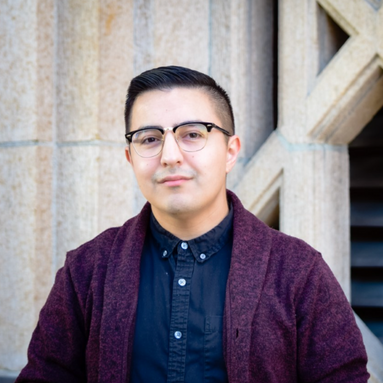The LEIF Program engages and empowers law students who are historically underrepresented in public interest law. During their terms, LEIF Fellows work as summer law clerks and participate in various events and programs where they help LAFLA clients, build their legal skills, and meet with other LEIF Fellows. They also complete a final written project. We will feature some of those written projects on our website throughout the fall.
2022 LEIF Fellow Bryon Alvarez, who clerked for the Supporting Families Workgroup, shared his story as a first-generation Latino involved with family law work. Bryon’s narrative is one of insight into the material conditions surrounding his environment: he envisions a better future that involves equitable access to resources for the most marginalized people in his community. As a first-generation Latino from a working-class community navigating the challenges of poverty, sexism, and lack of access, Bryon was interested in finding a way towards more opportunities that could lead him to success and a brighter future. His story is featured below.
Reimagining Family Court
by Bryon Alvarez
LEIF Fellow for the Supporting Families Workgroup
Coming into LAFLA, I had certain ideas about my future as an attorney could look like. As a first-generation Latino from a working class community, there was no other work I saw myself doing other than public interest law. Poverty and sexism were conditions that were normalized in the community I come from. However, it was not until I went to college, and later the “professional world” that these conditions I grew up to think as “normal” were far from it. This revelation led me to not only viewing laws and policies with a critical lens, but also the institutions and structures that create and uphold them. This path led me to be part of a movement to combat racial, gender, and class inequity, and what better way than to further my advocacy at the biggest legal aid organization in Los Angeles.
As an individual whose household was afflicted with domestic violence, I felt as if it was my duty to use my privilege, legal education, and personal experiences to center the voices of survivors on the path to their own liberation. LAFLA’s Supporting Families Workgroup was the medium by which I chose to challenge my own legal advocacy this summer. As a law clerk, I drafted domestic violence restraining orders, dissolution of marriage petitions, and other family law petitions relate to the intersection of child custody and domestic violence, all with hopes in combatting the domestic violence the client has suffered. I also conducted client interviews and drafted declarations with the intention that the survivor was able to include their perspective and request in their family court proceeding. Lastly, I had the honor of hearing a client’s story in court, seeing how domestic violence and mental health intersect in a legal setting, which also opened my eyes to the clear barriers that individuals face when encountering the judicial system. My experiences and responsibilities at LAFLA allowed me the opportunity to question the efficiency, validity, and ultimate purpose of the family court system. I began to critique and envision a new way.
“There can be no love without justice.” bell hooks, All About Love: New Visions
When working with clients, I incorporated various frameworks from critical and powerful feminists of color and abolitionists, such as bell hooks and Angela Davis. Not only does love humanize individuals who have often experienced complex trauma, but it also provided a mechanism to reframe their trauma to empowerment. The notion of love may seem trivial to some, however when utilizing love from a perspective of intention, reflection, and unlearning, then we can find progress within our relationships as people, and our relationship with the judicial system.
Inherently, family law proceedings are adversarial. It is an extremely stressful setting where two people pour their emotional and physical resources into often contentious disputes over child custody and visitation. After their pleadings are filed, both parties go through mediation processes where they must complete an online program and eventually attend an appointment to see if they can come to an agreement. These mediation services are insufficient because though the intent is to provide an overview of mediation and the effect of parental conflict on children, it is viewed as a burden and an ignored task that stands in the way of their family court proceedings. The court should intervene and provide social welfare programs that properly support parents their journey of the family court process.
As it stands, there are no follow-up mechanisms to provide free mental health, parenting classes/mentorship, nor any social services case management in the court. If the court’s priority is the efficiency of the judicial system, then investing in social services coupled with mediation will yield positive results with less cases calendared on the court docket and more input from the parties without retraumatizing survivors of violence. Coming from an intention of radical love, requires the court to focus on the individual relationships of the people they serve and support them in a way that will then trickle into the large institutional picture of their family law case.
However, if both parties cannot come to an agreement, then the ultimate decision will belong to the judge. If the legal standard of custody and visitation is in the “best interest of children,” then it is certainly valid to question why an individual who knows nothing about the family, who comes with their own experiences and biases, would then make a decision that affects society’s fundamental relationship, between a parent and a child. Relying on a judge can be a big risk, especially without the assistance of an attorney who is able to address all the relevant details of a case that can be easily overseen. To ensure that the focus is on the best interest of the child, it is vital that courts should provide social services and quality mediation to allow individuals more agency than they would if their case would be litigated.
“You have to act as if it were possible to radically transform the world. And you have to do it all the time.” – Angela Davis
I often think back to this quote when I feel overwhelmed when thinking about insurmountable barriers that legal institutions have imposed on society. It feels like nothing will ever be solved and injustices will continue to persist.
However, LAFLA taught me that this is a process, and this movement will not take place overnight. It involves hard work, persistence, and an unrelenting commitment to ensuring justice for all, even when you may feel hopeless. I plan to continue working towards movement lawyering through direct services and policy work that will allow me to keep legal institutions accountable to the people they serve. I am thankful to LAFLA for providing me not only the practical experience of working in family law, but also the opportunity to re-envision it.

